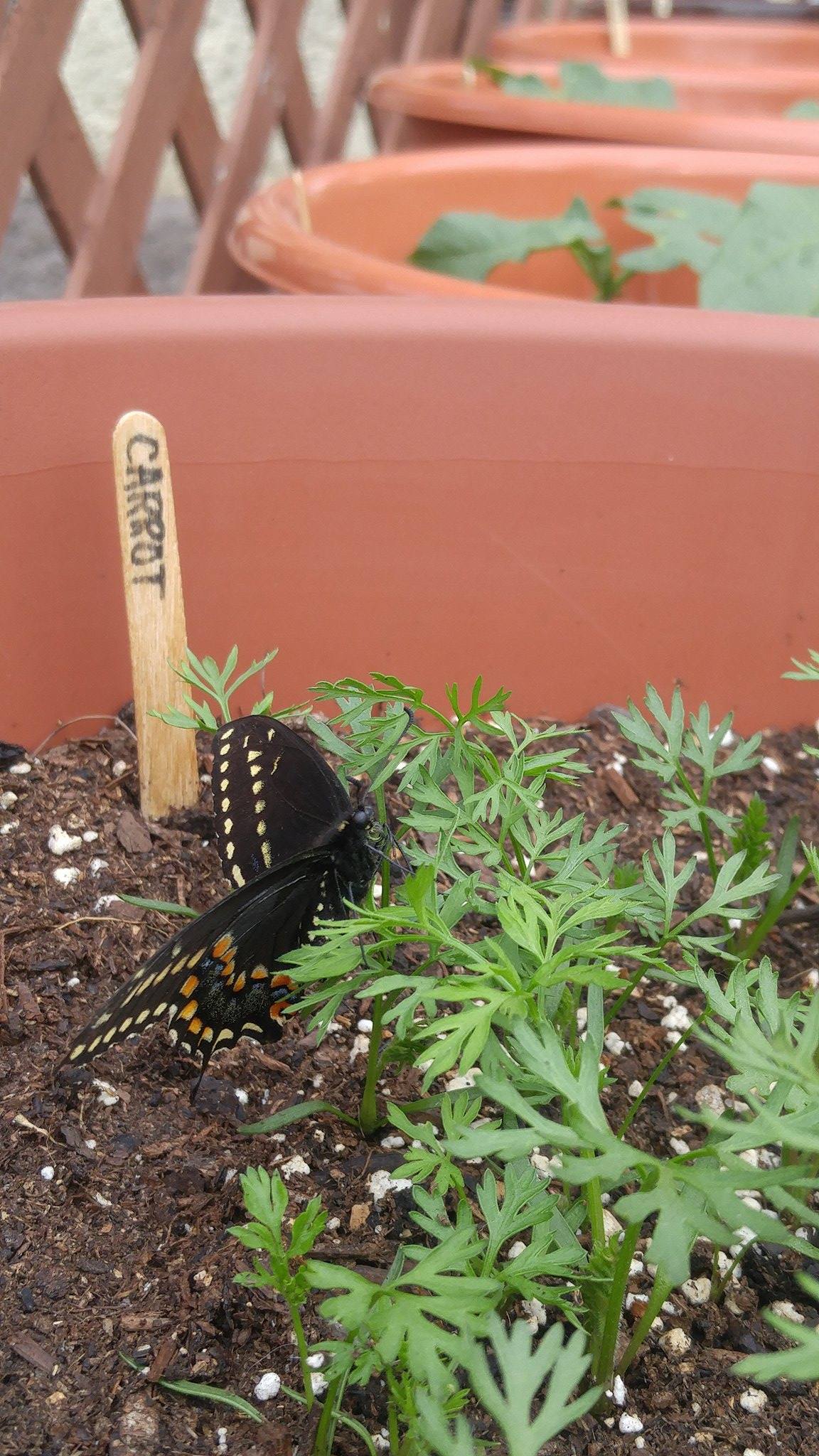Growing Carrots For Black Swallowtail Butterflies: Do Black Swallowtails Eat Carrots


Black swallowtail butterflies have an interesting relationship with plants in the carrot family, Apiaceae. There are many wild plants in this family but in areas where these are scarce, you might find the adult insects and their larvae hanging out in your carrot patch. Do black swallowtails eat carrots? Carrots and black swallowtail caterpillars have a love/hate relationship. Carrots and their cousins provide egg locations for adults and food for young larvae. So I guess the butterfly has the bulk of the benefits, but you get to attract these lovely pollinating insects when you grow carrots.
Black Swallowtail Butterflies and Carrots
Carrots are generally unbothered by above the ground insects but, in some regions, their foliage can be entirely decimated by the presence of black swallowtail larvae. Adult butterflies prefer nectar from various plants, but they love to lay their eggs on carrot family members and the caterpillars chow down on their leaves. If you love to attract wildlife, growing carrots for black swallowtail butterflies is a sure way to entice them. Black swallowtail butterflies range across North America. They are lovely black and yellow butterflies with a small amount of blue and red on their hind legs. Their larvae are large 2 inch (5 cm.) long caterpillars with voracious appetites. Do black swallowtails eat carrots? No, but their offspring definitely enjoy the foliage.
Are Black Swallowtail Butterflies Beneficial?
Black swallowtails are not really harmful as adults but they don't directly benefit any garden plants either. Their young are considered pests in large numbers, but the average hatch doesn't kill carrot plants, just defoliates them. In time, the carrots can regrow leaves and withstand a larval onslaught. Carrots and black swallowtail caterpillars can have a contentious relationship, but the adults simply use the plants as landing zones and a place to lay their eggs. Carrots and black swallowtail caterpillars are constant companions in late summer until the larvae pupate and overwinter. The larvae will also be found on wild plants such as poison hemlock and queen Anne's lace. Other plants that attract black swallowtails are dill, fennel, and parsley.
Growing Carrots for Black Swallowtail Butterflies
Black swallowtails are known for their beauty and many butterfly enthusiasts try to attract them to the garden. While providing them with colorful nectar rich flowers is a way to bring them in and feed them, uniting black swallowtail butterflies and carrots will support future generations. Black swallowtail butterflies will appear in spring and lay their eggs on ideal host plants. Their young do cause some damage through feeding but generally not enough to permanently damage the carrot crop. Many of our native butterflies provide a picturesque way of decorating the garden, providing viewing pleasure with their gentle ways and colorful beauty. Growing plants that are attractive as breeding areas will ensure a continued supply of these magnificent insects year after year. As an added bonus, you and your family get to watch the lifecycle of a truly interesting organism.
Controlling Overactive Populations of Larvae
In some instances, especially in commercial growing zones, large populations of the larvae may be a nuisance. In rare cases, it may be necessary to hand pick and destroy large infestations of caterpillars or use a product such as Bacillus thuringiensis, a natural bacteria that will kill the larvae. There are also three types of tachinid flies and several other natural predators, including some birds, which feed on the caterpillars. However, the larvae emit a nasty taste and odor that repels many potential predators. If you are not growing organically, you can also resort to a listed pesticide. Always follow directions and wait a month before harvesting any treated foods such as carrots.
Sign up for the Gardening Know How newsletter today and receive a free copy of our e-book "How to Grow Delicious Tomatoes".

Bonnie Grant is a professional landscaper with a Certification in Urban Gardening. She has been gardening and writing for 15 years. A former professional chef, she has a passion for edible landscaping.